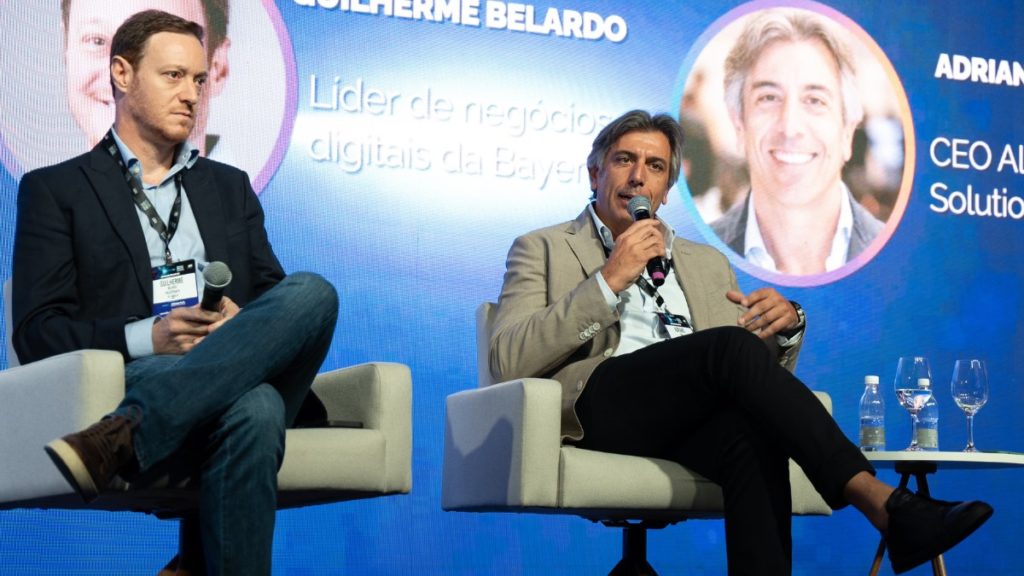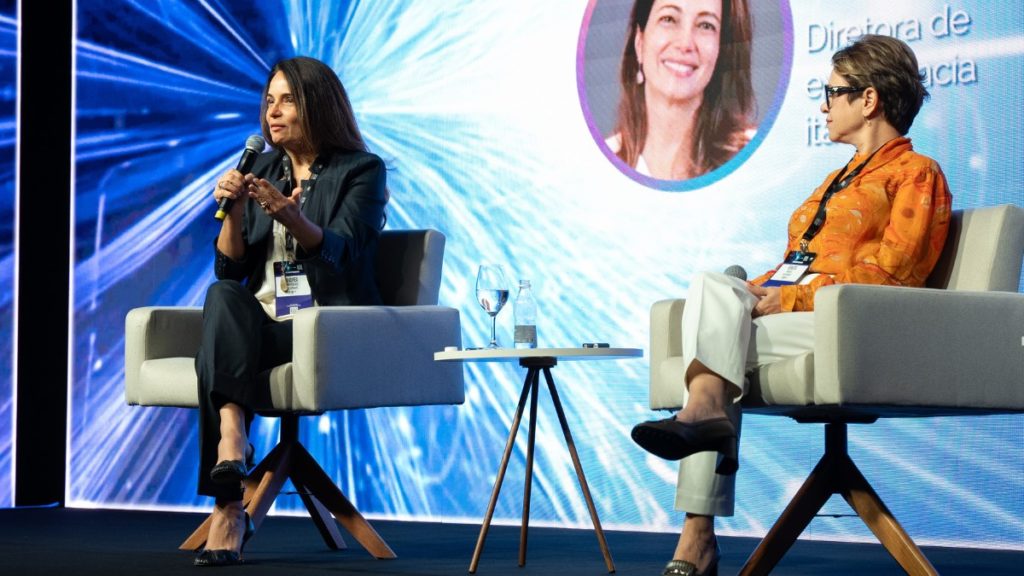Technology advances in increasingly rapid and transformative cycles. Generative AI has reached a point of no return, but it is not the only disruptive innovation capable of positively shaping the future of humanity. Technologies such as quantum computing, robotics, IoT, 3D printing, sustainable data centers, edge computing and edge AI, as well as 5G and 6G connectivity, are redefining our world. So how can we navigate these innovations and make informed decisions, avoiding the fear of being left behind? This was one of the questions that drove the 14th edition of ABES SUMMIT, held in São Paulo and which brought together important experts, and which had as its central theme “Inflection Point: the urgency of the new technological agenda”.

During the first roundtable of the day on “How to master the technologies that will accelerate the transformation of the economy?”, the panelists reported that one of the main challenges in a rapidly changing technological environment is uncertainty. “It is essential that organizations accept this uncertainty and recognize the need to experiment. Instead of fearing failure, they should embrace it as part of the learning process. Testing ideas on a small scale allows companies to continually learn and improve, minimizing risks. This “test and learn” mentality is essential to navigate a world of constant change”, commented Eduardo Paranhos, Partner at EPG Advogados, Leader of the ABES Artificial Intelligence Working Group and moderator of the panel.
 For Adriano Dias, CEO of Magna Sistemas/Almaviva Solutions, it is essential that organizations adopt a proactive mindset regarding innovations, as digital transformation is not a destination, but an ongoing journey. Investing in training and skills development in teams is essential to ensure that everyone is prepared to deal with new technologies and their implications. “This way, companies will be able to not only adapt to changes, but also thrive in a constantly evolving technological landscape.” He also highlighted that experience is essential in decision-making, especially in the digital world. He emphasizes that organizations must integrate technology into the existing legacy, preserving accumulated experience while innovating. For him, technology should be used to enrich the user experience, maintaining a balance between innovation and the preservation of systems that already work well.
For Adriano Dias, CEO of Magna Sistemas/Almaviva Solutions, it is essential that organizations adopt a proactive mindset regarding innovations, as digital transformation is not a destination, but an ongoing journey. Investing in training and skills development in teams is essential to ensure that everyone is prepared to deal with new technologies and their implications. “This way, companies will be able to not only adapt to changes, but also thrive in a constantly evolving technological landscape.” He also highlighted that experience is essential in decision-making, especially in the digital world. He emphasizes that organizations must integrate technology into the existing legacy, preserving accumulated experience while innovating. For him, technology should be used to enrich the user experience, maintaining a balance between innovation and the preservation of systems that already work well.
Collaboration and resilience
Collaboration is also a key factor in the success of technology adoption. Seeking strategic partnerships with companies that dominate certain technologies can be an effective way to move forward. Another important consideration is the courage to take risks. In the pursuit of innovation, failing to explore new opportunities can be as risky as making mistakes. “Using an assessment matrix that differentiates between routine activities and disruptive innovations helps companies map out where to focus their efforts. This strategy allows organizations to position themselves between operational excellence and transformative innovation, ensuring that they do not miss valuable opportunities,” says Renata Marques, CIO Latin America at Natura &Co. For her, AI represents Augmented Intelligence, not just artificial, promoting a more human and integrated future.

Furthermore, the strategy must be built around values that guide the customer experience and the company’s operations. “This helps build resilience in the face of uncertainty and ensures that all employees share a common vision. Alignment around solid principles facilitates adaptations and better decisions, ensuring that innovation is always focused on the well-being of the consumer,” commented Andrea Carpes Blanco, Director of Customer Service Experience, Operations and Digital Products at Itaú Unibanco. The transition to artificial intelligence in sectors such as banking is a topic that generates much discussion. She also highlighted that the financial sector has been agile in adopting new technologies, mainly because it recognizes the potential of artificial intelligence in data analysis. She emphasizes that customer service, especially in call centers, is a gold mine of data. With artificial intelligence, Itaú was able to transform this mountain of information into valuable insights, improving the customer experience and increasing operational efficiency.
Guilherme Belardo, Head of Digital Business Development at Bayer, and Head of Digital Business Development and Strategic Partnerships at The Climate Corporation, shares an interesting mindset that permeates his organization: the culture of “test fast, evaluate fast, and fail fast.” This approach recognizes that failure is an inevitable part of the innovation process, and this understanding allows the company to move quickly, especially in a sector like agriculture, where agility in product delivery is essential. He also mentions the importance of involving farmers, the end customers, in the development process. “This collaboration is vital, as farmers know their pain points and challenges well, providing valuable insights that can improve the final product. This interaction not only speeds up development, but also ensures that the solutions offered are truly relevant to the market needs.”
In short, digital transformation requires an integrated approach, where people empowerment, data governance and cross-company collaboration are key. Change is inevitable and companies that prepare themselves properly will be in a unique position to meet the challenges and seize the opportunities that the digital age offers.
To watch the panel in full, access the ABES channel on Youtube: https://youtu.be/ZCPQhAiB-NY
To check out photos from the event, visit: https://flic.kr/s/aHBqjBQMZF
About ABES SUMMIT
In its 14th edition, the ABES SUMMIT 2024 had as its central theme “Tipping Point: the urgency of the new technological agenda” and explored several topics, such as how to master the technologies that will accelerate the transformation of the economy, regulation and public policies, ESG agenda, multigenerational, inclusive and digital workforce. One of the objectives of the event was to promote a day of immersion for CEOs and leaders, highlighting the power of technology applied to business, where each moment was designed to spark new ideas and strategies. It was sponsored by Magna Sistemas/Almaviva, ApexBrasil, Finep, Caesbra Benefícios, Embrapii, Grilo and Share People Hub. It took place on October 30th at JWMarrioT, in the capital of São Paulo, and featured free online transmission, in addition to content curation by Silvia Bassi, publisher of The Shift.













